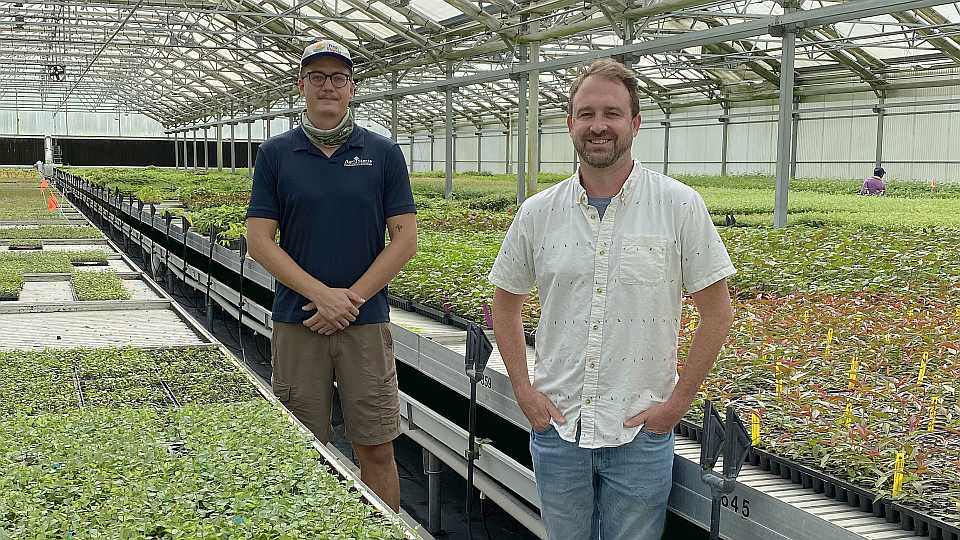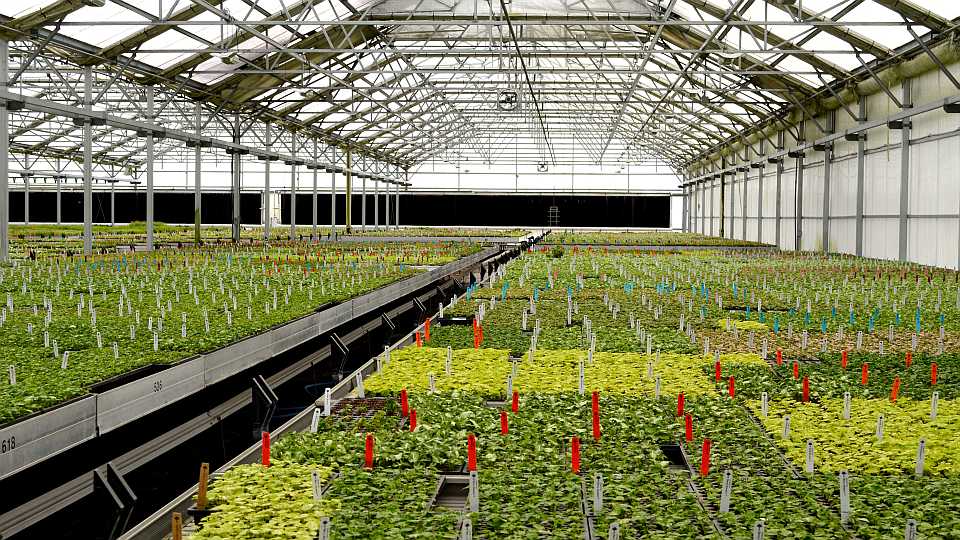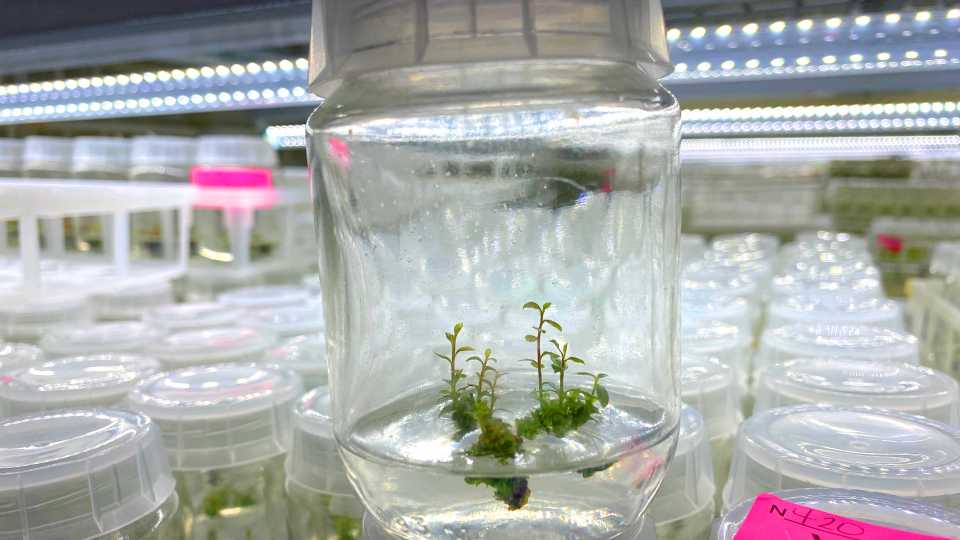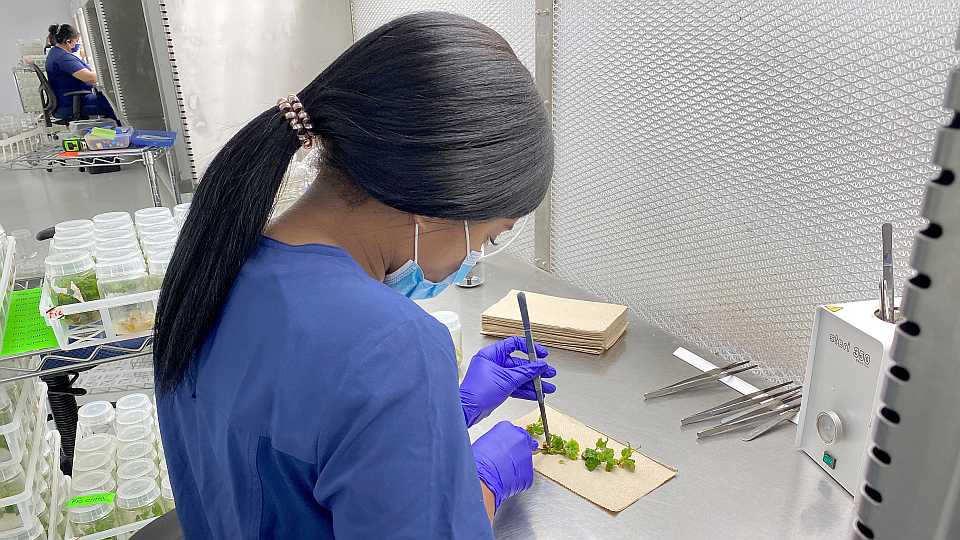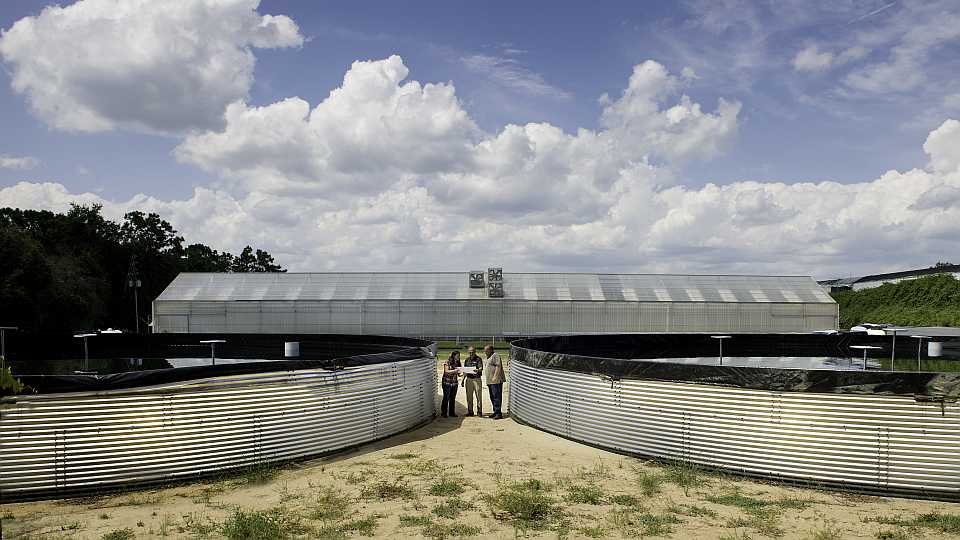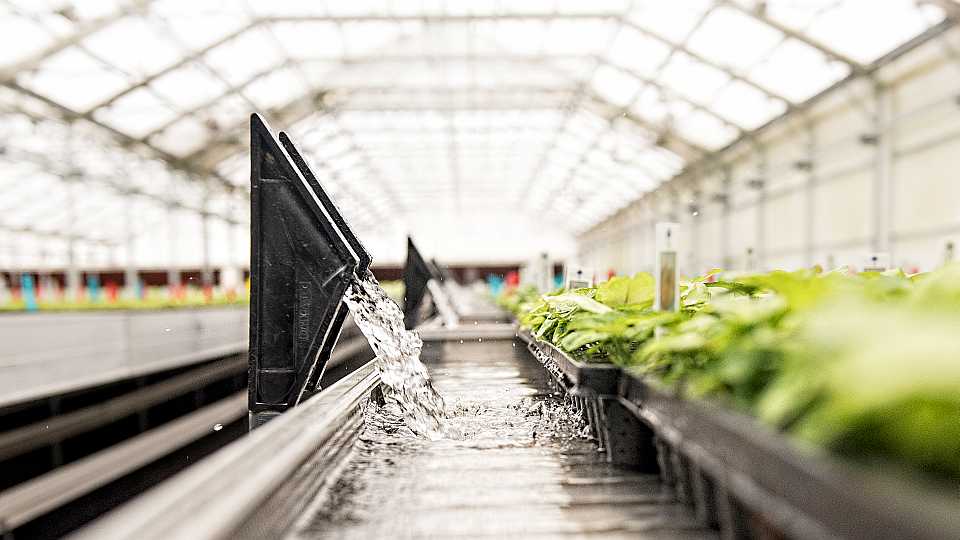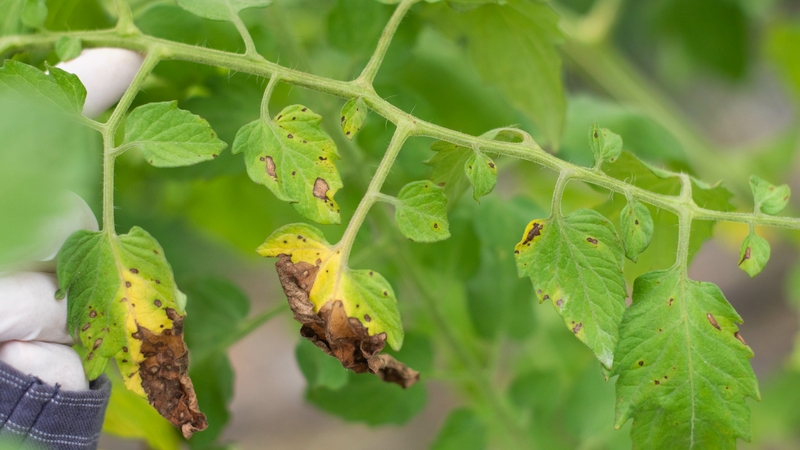Fresh Take on Specialty Crops and Tech Keep Agri-Starts Growing
When Randy Strode and (partner at the time) Gerry Abner bought a property off Kelly Park Road in Apopka, FL, in 1984, it marked the humble beginnings of Agri-Starts, Inc. The little trailer lab and Quonset hoop houses only totaled about 6,500 square feet. But since that time, through continued diversification and innovation, the nursery is now home to 210,000 square feet of greenhouses — and in need of more space. Ty Strode, the President of Agri-Starts, took over day-to-day management of operations from his father at the beginning of this year. He says the company has purchased another 5 acres adjacent to the Kelly Park property, and another headhouse, and a 30,000 square-foot greenhouse is planned for that space.
“Our expansion model has been 30,000 square feet at a time,” says Ty Strode. “In our 72-cell plant packs, this allows us to grow one million plants a turn in that space.”
When the company was established, it grew only pre-finished, indoor foliage, serving the Florida market. The company saw its first big expansion about 20 years ago when it started working with national brokers reaching northern states and the spring market.
Adding Edibles
Strode says the expansion worked well. But by the third year, things at the nursery began to get out of balance. “We would be hitting it hard for three or four months then slow down,” he says. “We had these gaps we needed to fill to keep our labor force steady. That is where food crops came in and served us well.”
The nursery added blueberries in 2006, followed by blackberries a few years later. Other niche food crops are grown on the farm as well. The nursery sells the berries both to other nurseries and directly to farmers. The business took off and has become an important market. And in 2016, Johnny Hoblick was hired to help manage and grow the business.
“We sell blueberries mostly into Florida, Georgia, and North Carolina,” Hoblick says. “We raise mostly varieties developed by the University of Florida. ‘Emerald’, ‘Arcadia’, and ‘Optimus’ are our three most-requested varieties right now. We sell blackberries to farms throughout the Southeast up to Virginia and over to Texas and Oklahoma.”
New Lab to Support Growth
Agri-Starts was an early pioneer in the use of tissue culture to produce starter plants. This year, the company completed construction of an additional state-of-the-art tissue culture lab on the property. The 18,000 square-foot facility has the capacity to produce 25 million plants annually when the space is fully utilized.
Strode says tissue culture provides several benefits when managed properly. Agri-Starts now has the ability to grow all year. Plants are more uniform and consistent (essentially a clone). Being in a juvenile state typically means faster growth for the starter plant, and plants typically are bushier as well. He adds the technology has evolved and improved over time.
“It all comes back to how you manage your mother stock,” he says. “Every lab has had their trials and tribulations as to how they manage their mothers. And it is different from crop to crop. We manage our foliage items much differently than we manage our hardwood crops. It is all about developing that internal knowledge, learning from trial and error, and making adjustments along the way.”
The new lab is not the only high-tech investment the nursery has made recently. For the past year, it has been working to customize an enterprise resource planning (ERP) software platform from Microsoft Dynamics 365 (formerly Dynamics NAV). Prior to that, they spent a year searching for the right partner and ERP vendor.
“Our business is so dynamic with different products, seasonalities, and customers,” Strode says. “Every one of those trays is important to us to get to our customers on time and in good quality. In order to do that with the 1,000-plus items we handle, we must automate some of these production planning and tracking processes. That’s what we hope to do with the new ERP platform. It is a big deal and a big investment in time and money.”
Water Stewardship
Agri-Starts has been an innovator in water conservation. The nursery received the Florida Commissioner of Agriculture’s Environmental Leadership Award in 2014. Capturing and recycling water is key among their conservation efforts.
The farm has two, 250,000-gallon cisterns that capture rainwater off the roofline of the greenhouses. That water is used mostly for cooling the wet pads, which is a heavy-water-usage practice.
“With our roofline, if we get 4 inches of rainfall, that fills our holding capacity of 500,000 gallons, which will provide us water for about 45 days,” Strode says. “Sometimes the tanks overflow, so we have designed the back end of the property to slope down toward retention ponds to capture that water. We worked with the St. Johns Water Management District and USDA’s National Resources Conservation Service on a cost-share on that project.”
Inside the greenhouses, the practice of ebb and flow is used for irrigation and fertigation. Growing tables are flooded for 10 minutes and then drained into a gutter system that captures the water. The water is then filtered and treated, and fertilizer levels are adjusted.
“None of that water or fertilizer hits the ground,” Strode says. “To keep it simple, say we apply 100 gallons of water. We are capturing 85 gallons of that with our gutter system for reuse. In fact, our groundwater usage is so small that the entire nursery complex operates off a single, 4-inch well.”
Dipping Toes into Hemp
This fall, Agri-Starts applied for a commercial industrial hemp license. According to Ty Strode, they plan to try the new alternative crop cautiously.
“We are not interested in marketing genetics with all the uncertainties around how plants are going to perform,” he says. “We are looking at contract growing where a grower comes to us and asks us to grow a certain amount of plants of a particular variety.”
COVID-19 Impacts
Like all other businesses, Agri-Starts felt the negative impacts of the COVID-19 pandemic. When the initial lockdown occurred, Ty Strode says there were a lot of orders cancelled. But the good news is that demand has come back strong and is high in their key crops and markets.
There’s more good news in that the company has managed to keep the infection at bay with strict sanitation, mask requirements, and social distancing protocols at the facility.
“We had some positives among our technicians, and those infections didn’t come from the workplace,” he says. “So our extreme safety precautions seem to be working well.”





